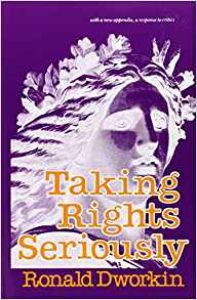Join getAbstract to access the summary!

Join getAbstract to access the summary!
Ronald Dworkin
Taking Rights Seriously
Harvard UP, 1977
What's inside?
Individuals possess moral, legal and political rights – whether the state recognizes them or not.
Recommendation
In the mid-1970s in America, controversies over thorny questions surrounding the rights of dissenters, minorities and women, as well as free speech and abortion abounded, and legal positivism dominated jurisprudential thought. One of the most influential thinkers in American jurisprudence, Ronald Dworkin (1931–2013) entered this fray with a series of essays which put forth a radical theory of law that posed a powerful challenge to prevalent views. Dworkin explains why individual rights exist independent of legal recognition, and outlines how judges and lawyers should think about and argue for them. Dworkin’s sophisticated but accessible essays are necessary reading for lawyers, lawmakers and judges, but getAbstract also recommends them to lay readers who care about legal practice, political philosophy or the history of law.
Summary
About the Author
Ronald Dworkin (1931–2013) was Professor of Philosophy and Frank Henry Sommer Professor of Law at New York University. One of the most highly regarded and influential legal philosophers of the post-war era, his numerous publications include Freedom’s Law and A Matter of Principle.

















Comment on this summary